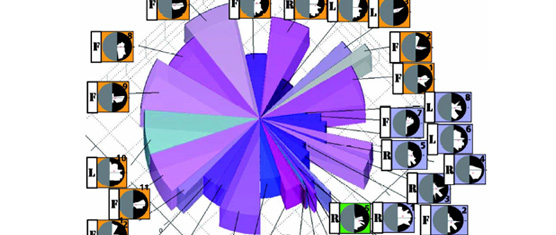C. Urdiales, E. J. Pérez, G. Peinado, M. Fdez-Carmona, J. M. Peula, R. Annicchiarico, F. Sandoval, and C. Caltagirone

Abstract
Assisted wheelchair navigation is of key importance for persons with severe disabilities. The problem has been solved in different ways, usually based on the shared control paradigm. This paradigm consists of giving the user more or less control on a need basis. Naturally, these approaches require personalization: each wheelchair user has different skills and needs and it is hard to know a priori from diagnosis how much assistance must be provided. Furthermore, since there is no such thing as an average user, sometimes it is difficult to quantify the benefits of these systems. This paper proposes a new method to extract a prototype user profile using real traces based on more than 70 volunteers presenting different physical and cognitive skills. These traces are clustered to determine the average behavior that can be expected from a wheelchair user in order to cope with significant situations. Processed traces provide a prototype user model for comparison purposes, plus a simple method to obtain without supervision a skill-based navigation profile for any user while he/she is driving. This profile is useful for benchmarking but also to determine the situations in which a given user might require more assistance after evaluating how well he/she compares to the benchmark. Profile-based shared control has been successfully tested by 18 volunteers affected by left or right brain stroke at Fondazione Santa Lucia, in Rome, Italy.

